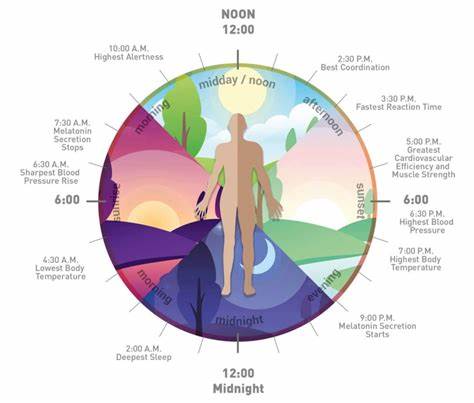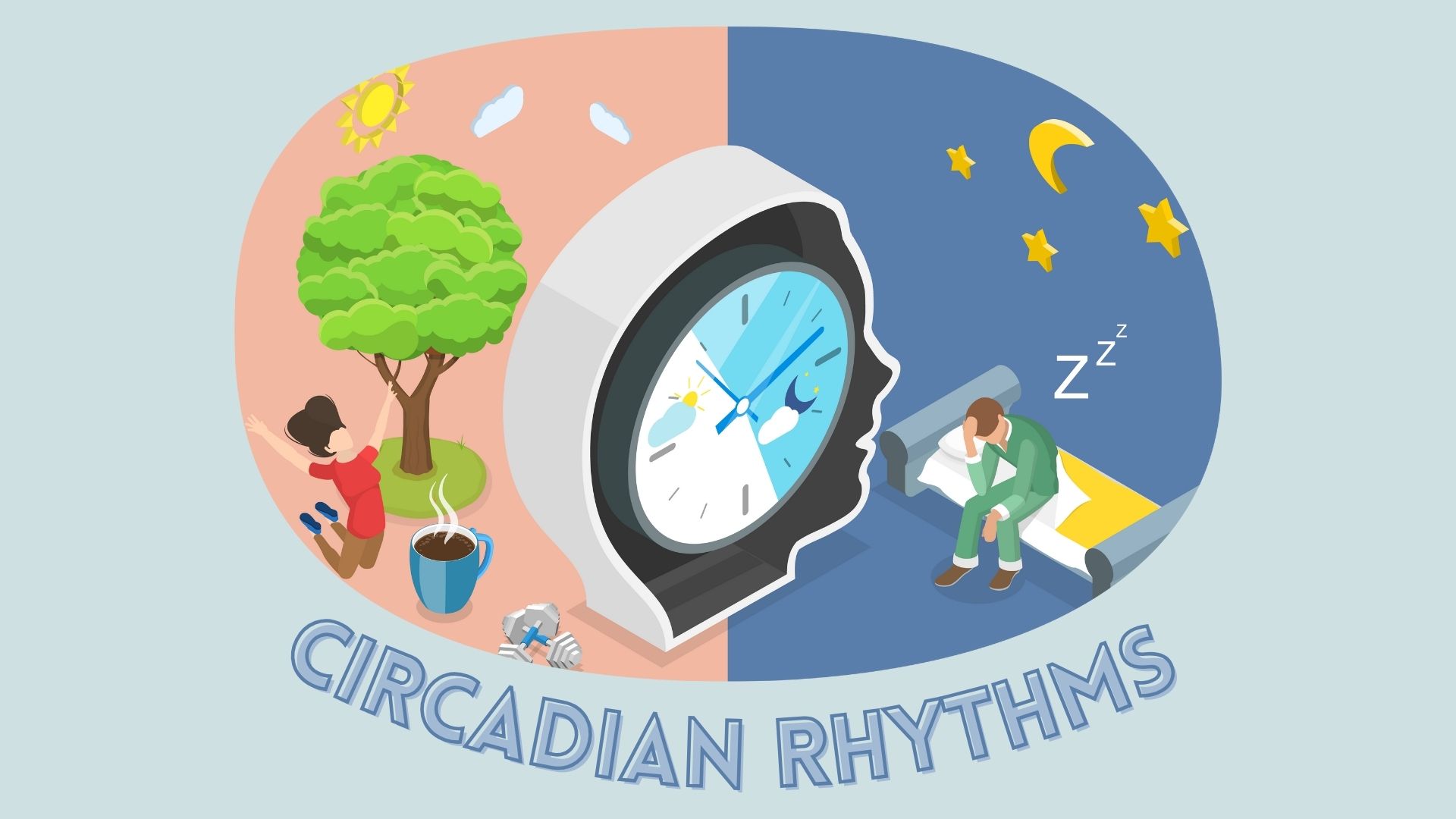Your body has a 24-hour clock or biological clock called the circadian rhythm. This clock ticks and alerts the body to carry out certain functions throughout the day. But sometimes, a malfunction occurs in this clock that causes a disruption of these cycles, significantly deteriorating your health.
You should know what a circadian rhythm is and how any change can affect your physical and mental health! Circadian Rhythm is a term used to define the changes, mental, physical, or behavioral, that a body goes through within a 24-hour cycle. It ensures that the body remains optimized to carry out its regular activities without a hitch.
The most common circadian rhythm found in all living species is the sleep-wake cycle. And it is through these cycles, they achieve a consistent and therapeutic sleep schedule.
The circadian rhythms work in the background of the body’s internal biological cycle to regulate aspects like hormone secretion, metabolism regulation, control of body temperature, waking hours, etc. Each body organ has its own rhythm that gets synchronized with the circadian pacemaker or the central clock residing in the brain. And this main clock receives the cue from the environment to project any necessary changes.
Some of the neurons from the eye’s visual cortex pass through the hypothalamus, and thus through the suprachiasmatic nucleus which processes signals coming from the eyes and releases hormones and neuronal signals which trigger behavioral and physiological events. This could be everything from lowering the metabolism during certain parts of the day to making the organism more active during other periods.
adulthood, the sleep requirements become subjected to the habits and conditions of the individual. But objectively, it is requisite to maintain proper and healthy sleep hygiene to deal with the exertion of their daily activities.
Getting 7 to 9 hours of sleep is essential to ensure that the body gets time to make up for the labor it went through the day. Adults have melatonin released at around midnight, and they experience peak sleep at 2 to 4 AM and 1 to 3 PM.
There are specific tips you can follow that can help you fix your circadian rhythms and give you better 24-hour sleep cycles:
Going out in the sun – Attaining strong sunlight, especially during peak hours, can restore the light cue of the circadian rhythm.
Maintaining a sleep schedule – Going to bed and waking up in the morning at fixed points of the day can help create a stable circadian rhythm. This would mean that your body will know when it needs to release melatonin or wake you up at the desired time.
Say no to caffeine – While a strong caffeine sound pleasing, the drink can throw your schedule off and make it impossible to go to sleep even if your body needs it.
Get rid of blue lights – Lights are the cue for your body to wake up. So, avoid a lot of lights because it might make the SNC think that it is still daytime. Especially blue light exposure right before bed. Avoid using electronics like TV, Mobile, Tablets, etc.
Workout daily – Working out will exhaust your body and naturally seek sleep.
Only short naps in the afternoon or evening – Sleeping for too long in the afternoons and evening can throw your circadian rhythm off.
Get comfortable – Get yourself a cozy bed with the right temperature and dim lights. This will automatically relax your body and put itself to sleep.
As you must have garnered by now – circadian rhythm is an integral part of your lifestyle. It is the reason that your body falls asleep and wakes up every day. With so much riding on its back, we must ensure that we never purposefully affect circadian rhythm and cause ourselves problems. So, be sure to keep up a healthy life with sufficient sleep in between.


